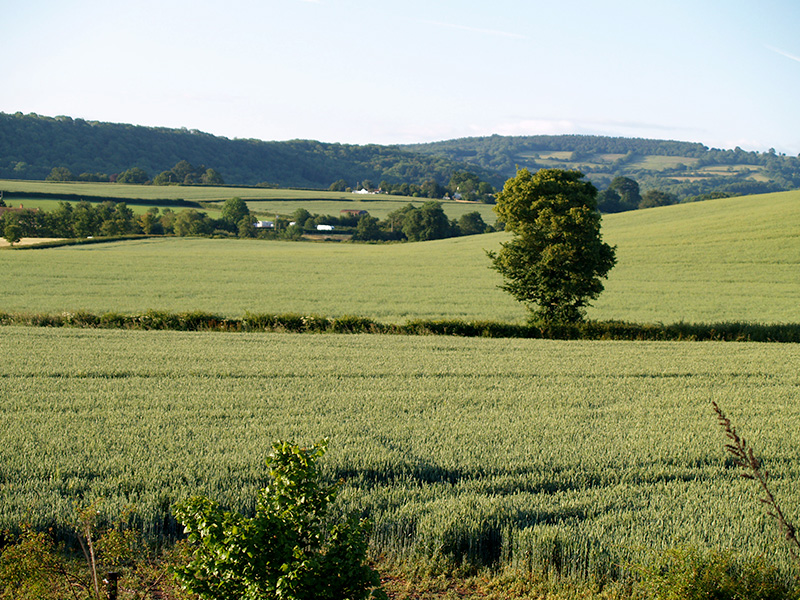
Learn to farm crops for food, fibre or fuel
Agronomic farming provides us with the raw products to produce a great deal of the products we find in our shops; from breads, cereals, and cooking oils to fabrics and medicines. Modern society depends upon successful agronomic farming more than what most people realize. The need to understand and develop and constantly improve agronomic practices has created massive employment opportunities in the past; and that situation is unlikely to ever alter.
You don't need to be highly qualified to work in Agronomy - but you do need to be highly knowledgeable.
This course provides a very solid foundation for you to understand the scope and nature of agronomy, as well as the technology and farm practices that underpin this industry. It is a starting point for farmers, technicians or entrepreneurs, or professional development for anyone with related knowledge or experience who needs to "fill in" gaps in what they know and understand about agronomy.
What this Course Covers
This Course Covers:
- Cereal Crops
- Oil Crops
- Fibre Crops
There are 8 lessons in this module as follows:
- INTRODUCTION TO AGRONOMIC PRACTICES
- Crop types
- Plant structure and function
- Transpiration rate
- Selection criteria for plants
- Understanding monoculture
- Row crops
- Cover crops
- Crop operations
- Planter types
- CULTURE: WHAT INFLUENCES CROP GROWTH
- Soils
- Problems with soils
- Loss of soil problems
- Erosion
- Salinity
- Soil sodicity, acidity and alkalinity
- Improving soils
- Cultivation techniques
- Plant nutrition and nutrient deficiencies
- Organic fertilisers
- Soil life
- Insect pests
- Diseases
- CROP HUSBANDRY PRACTICES
- Operations
- Identifying weeds
- Ways to control weeds
- Spraying
- Irrigation
- Chemical crop protection
- Preparing plant pathogens for microscopic observation
- Culturing pathogens
- Natural pest and disease control
- Physical controls
- Organic sprays and dusts
- SEED AND SEED MANAGEMENT
- Seed storage
- Types of seed storage
- Seed vigour testing
- Dormancy factors affecting germination
- Germination treatments
- Types of media
- Media derived from rock or stone
- Media derived from synthetic materials
- Organic media
- Diseases
- Salinty build up
- ARABLE CEREAL CROPS
- Cereal crops
- Zadock scale
- Wheat
- Barley
- Oats
- Triticale
- Sorghum
- Maize
- Rice
- Millet
- Sugar cane
- Ryegrass
- Hay and silage
- Quality control
- Storage and handling
- Hydroponic fodder
- ARABLE BROADLEAF CROPS
- Characteristics of broadleaf crops
- Oil crops
- Chickpeas
- Narrow-leafed lupins
- Canola
- Faba beans
- Cover crops
- Common legumes
- HARVESTING
- Crop preparation for harvest
- Crop harvest equipment
- Forage harvesting equipment
- Cereal harvesting equipment
- Root crop harvesting equipment
- Grain storage
- Contract harvesting
- CROP MANAGEMENT - SPECIAL PROJECT
- Crop management from planting to post harvest handling
Workload
Study when, where and however much you want. For most students, the course can be completed with a total of around 100 hours of study; and a commitment close to that may be needed to achieve desired learning outcomes.
Assessment
Self Assessment Tests are presented throughout the course. These are essentially an automated quiz. When you undertake a "SAT" or "Self Assessment Test", you will be able to see what you got correct, and what was incorrect; and in that way, you can identify your weaknesses.
Assignments are given at the end of each lesson. You should complete this assignment, paying careful attention to follow what is asked of you. It can be just as important to learn to work to specification, as it is to learn about the topic you are studying. Graduates who develop a habit of working to specification in the field of agronomy, will impress employers, and will be more efficient when self employed.
A Final Exam is offered upon satisfactory completion of all assignments. This is optional. If you choose to apply for and do this exam, you will have the possibility of obtaining a "formal credit" or "Pass Certification" for this course. A fee applies. The exam may be sat under prearranged conditions anywhere in the world. This college will award you a formal transcript, upon successful completion of the exam, as proof of your results.
How This Course Can Help you: where could you work after studies in agronomy?-
- On farms that produce cereal crops
- As a consultant to farmers
- In Farm management
- For commercial businesses that supply seed, animal feed and grains
- For crop protection businesses